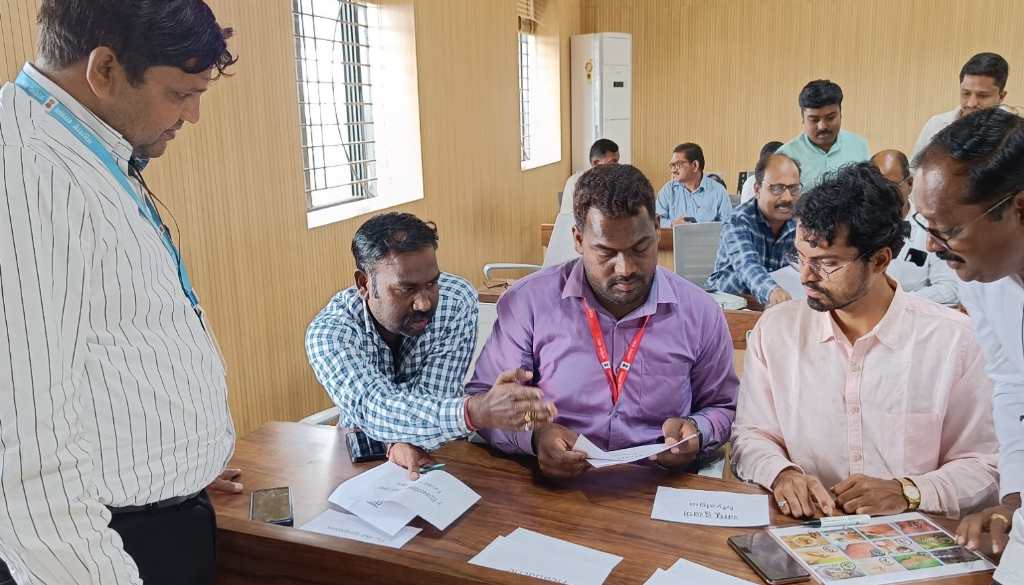Pune Knowledge Cluster Launches SAKSHAM Workshop Series to Strengthen Healthcare Workers’ Capabilities In Rural Areas

Mubarak Ansari
Pune, 20th February 2024: To support the training of multipurpose healthcare workers in Maharashtra, the Pune Knowledge Cluster (PKC) has introduced the SAKSHAM Workshop Series. This initiative aims to provide on-ground training to healthcare workers, enhancing their skills in disease surveillance, with a particular focus on vector-borne diseases.
Multipurpose healthcare workers play a pivotal role in managing communicable diseases like Malaria, Dengue, Tuberculosis, Leprosy, and other vector-borne diseases at the grassroots level. Responsibilities include environmental sanitation, disease outbreak detection and control, public health awareness generation, and more. However, these workers often lack refresher training, leading to the use of outdated medical practices.
PKC’s previous success with a one-day workshop for Public Health Workers in Pune Municipal Corporation (PMC) in August 2023 prompted the development of the SAKSHAM Workshop Series. The workshops, conducted in collaboration with the District Malaria Office (DMO) and the National Center for Vector-Borne Disease Control (NCVBDC), focus on refresher lectures, interactive sessions, and activity-based learning modules.
The workshops cover various aspects, including dengue disease background, vector life-cycle, data collection, impact of climate change on diseases and incorporate insights from experts affiliated with ICMR-National Institute of Virology, Yashwantrao Chavan Memorial Hospital, Prayas Health Group, and the Indian Meteorological Department.
Dr. Mangesh Gokhale, Scientist D (Rtd), Medical Entomologist, ICMR-NIV, “This workshop is a very useful exercise and is a need of the hour. There is a very frank and candid exchange between the participants and the subject/domain experts. This is a holistic attempt in which the participants share their experiences and logistical problems of field surveillance of vector borne diseases such as Malaria, Dengue, Chikungunya and Zika virus(es). The experts and the officials of the workshop training team explain the nuances of the field and laboratory aspects of surveillance, importance of systematic data collection, human host and the vector host dynamics and the control aspects of the vectors to check the risk of transmission and disease containment. The interactive question-answer section before and after the training workshop and the feedback gathered from the participants emphasizes the fact “That this Training Workshop is an Idea whose Time Has Come “.
Dr. Suryakant Deokar, Assistant Medical Officer of Health, Pune Municipal Corporation (PMC), said, “The field workers were extremely happy to get in depth scientific knowledge about the different mechanisms of spread of vector-borne diseases, especially dengue. It is the first time, that such kind of a refresher workshop has been organized for the field workers and they would love to attend more such workshops!”.
Dr Ritu Parchure from Prayas health group which works on Climate change and Health, “Climate change is impacting health in many ways. It can increase the menace of vector-borne diseases such as dengue, if the systems and the people are not well prepared for this challenge. Due to global warming, we are likely to face rising temperatures, more frequent and intense heatwaves, and erratic monsoons. Such altered weather patterns provide favorable conditions for mosquitoes to breed. This challenge requires more vigilance. We must also adapt the current mosquito control measures to changing situations. Increasing the capacities of frontline health teams is a necessary and welcome step.”
Dr Harshal Pandve, Professor and Head, Department of Community Medicine, YCM hospital, Pimpri also said that these workshops identify lacunae in identifying breeding spots and how the work taken up by the workers, like detecting disease outbreaks and maintaining records, is crucial.





